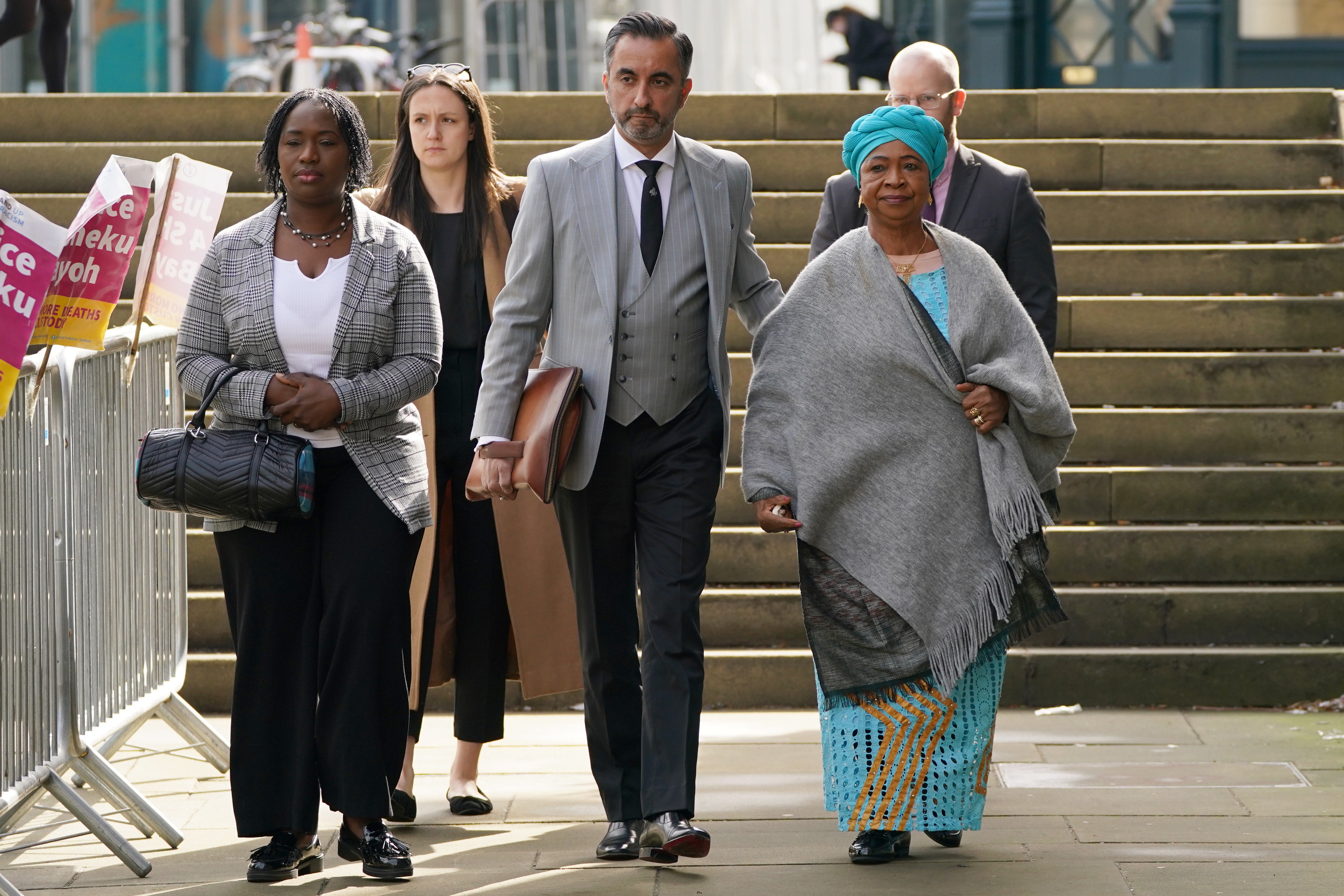Bayoh family ‘will not rest till there is justice’ as inquiry stage concludes
Sheku Bayoh’s family said they had been ‘filled with rage and torment’ during parts of the inquiry.

Your support helps us to tell the story
From reproductive rights to climate change to Big Tech, The Independent is on the ground when the story is developing. Whether it's investigating the financials of Elon Musk's pro-Trump PAC or producing our latest documentary, 'The A Word', which shines a light on the American women fighting for reproductive rights, we know how important it is to parse out the facts from the messaging.
At such a critical moment in US history, we need reporters on the ground. Your donation allows us to keep sending journalists to speak to both sides of the story.
The Independent is trusted by Americans across the entire political spectrum. And unlike many other quality news outlets, we choose not to lock Americans out of our reporting and analysis with paywalls. We believe quality journalism should be available to everyone, paid for by those who can afford it.
Your support makes all the difference.The family of Sheku Bayoh say they “will not rest till there is justice” as the current “block” of evidence hearings concludes.
In a statement through their lawyer, Aamer Anwar, the family said they had been “filled with rage and torment” while watching parts of the inquiry.
The first day of evidential hearings began in Edinburgh on May 10 and the next stage will begin in November.
Lord Bracadale’s inquiry is examining the circumstances of the 31-year-old’s death, how police handled the aftermath and whether race was a factor.
Mr Bayoh died after being restrained by officers during a call-out in Kirkcaldy, Fife, in May 2015.
On 11 May this year, a statement from chief constable Iain Livingstone was read out to the inquiry where he pledged that Police Scotland would be “an anti-racist service”.
In the following days, the inquiry was shown a 3D reconstruction of the scene where Mr Bayoh was restrained on Hayfield Road as well as real-time footage and audio.
It later heard from the police officers who responded to 999 calls reporting the 31-year-old was carrying a knife and restrained him on the road.
The family have sat in silent dignity, yet filled with rage and torment watching officer after officer graphically demonstrate and display their use of weapons on Sheku
Medics who tried to revive Mr Bayoh at the nearby Victoria Hospital also gave evidence.
On Thursday, Mr Anwar released a statement on the Bayoh family’s behalf.
It said: “Today this first chapter of oral evidence in the Sheku Bayoh public inquiry comes to an end, seven years and nine weeks after Sheku died in police custody. The inquiry will reconvene in November.
“Sheku’s loved ones appreciate that is likely to be some two years before this wide-ranging inquiry concludes, however, to date they have read and watched every piece of evidence.
“It has not been an easy process, the family have sat in silent dignity, yet filled with rage and torment watching officer after officer graphically demonstrate and display their use of weapons on Sheku.
“Sadly, not one officer who gave evidence, took the opportunity to turn to the Bayoh family and express their condolences, never mind remorse for their actions on May 3 2015.”
The statement said the family had considered walking away from the inquiry at some moments.
It continued: “Some of the officers acted as though they were colour blind, but Sheku’s family believe his skin colour was treated as a weapon, as he met lethal and overwhelming force.
“Sheku was a loving partner to Collette, brother, father to two young boys, uncle, and son, yet over seven years his loved ones have seen him dehumanised, smeared, stereotyped and stripped of his right to life.
“Whilst the family respect that in time it will be for Lord Bracadale to deliver his conclusions, Sheku’s loves (loved ones) after many years of struggle feel vindicated, having fought for the truth despite the many lies and betrayals, but these officers should know, Sheku’s family will not rest till there is justice.”
The inquiry’s chair, Lord Bracadale, also released a statement.
It said there were some outstanding issues in the current “block” of evidence, on which evidence will be led in November.
There will be further “blocks” of hearings which will focus on a number of topics, including Police Scotland’s post-incident management, the cause of death and the issue of race.
A multimedia timeline depicting the events around the arrest on Hayfield Road will be published on the inquiry’s website.